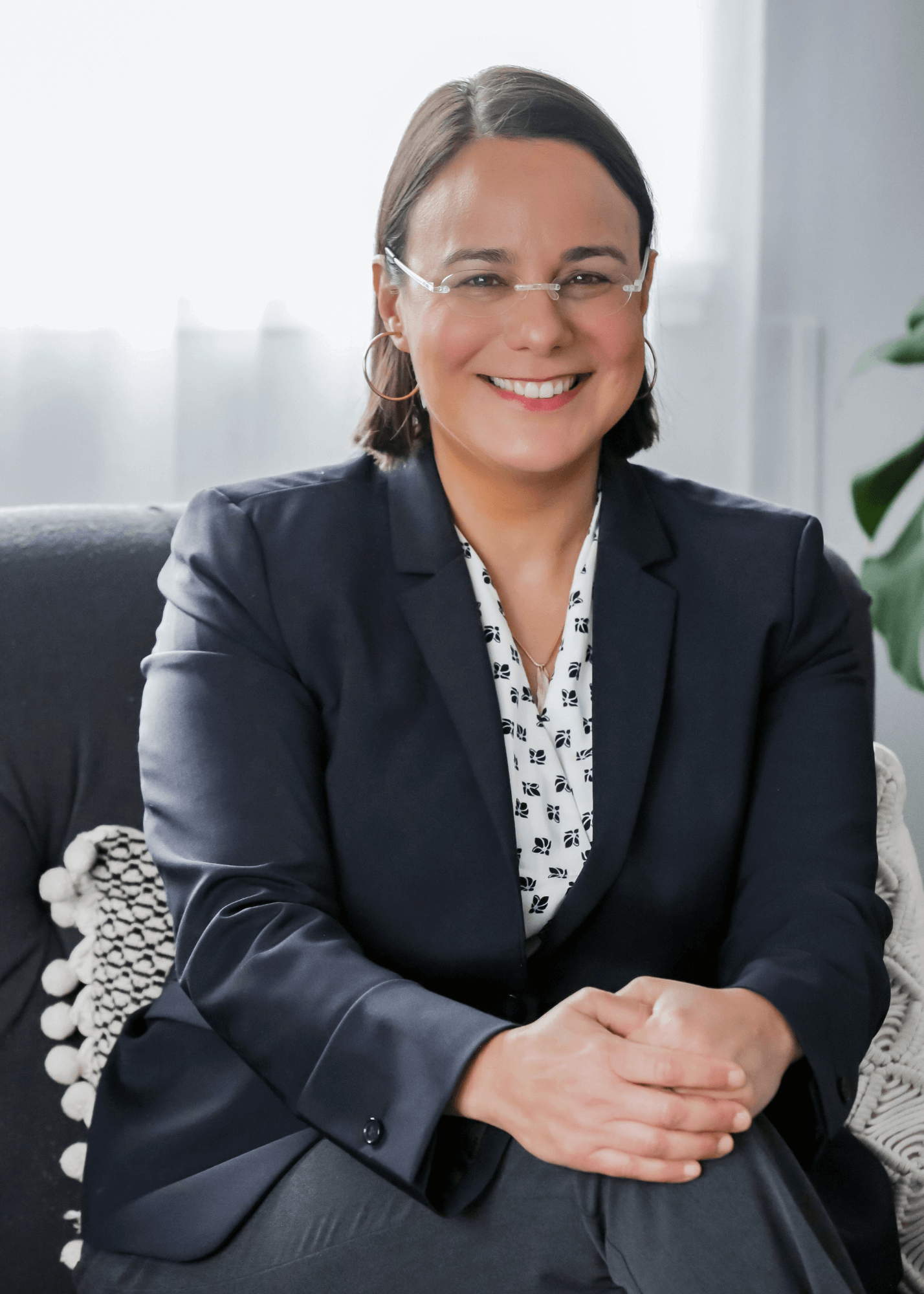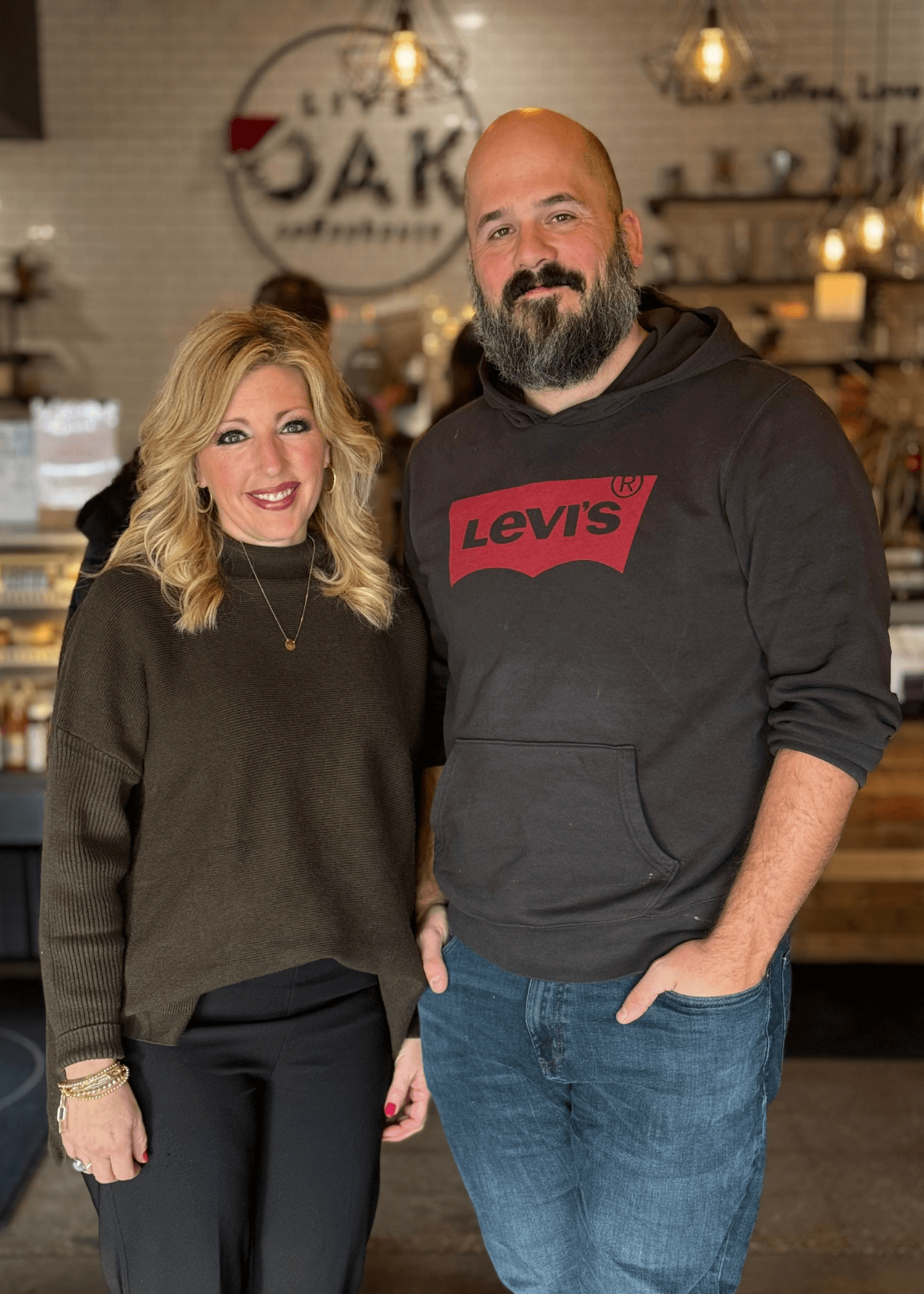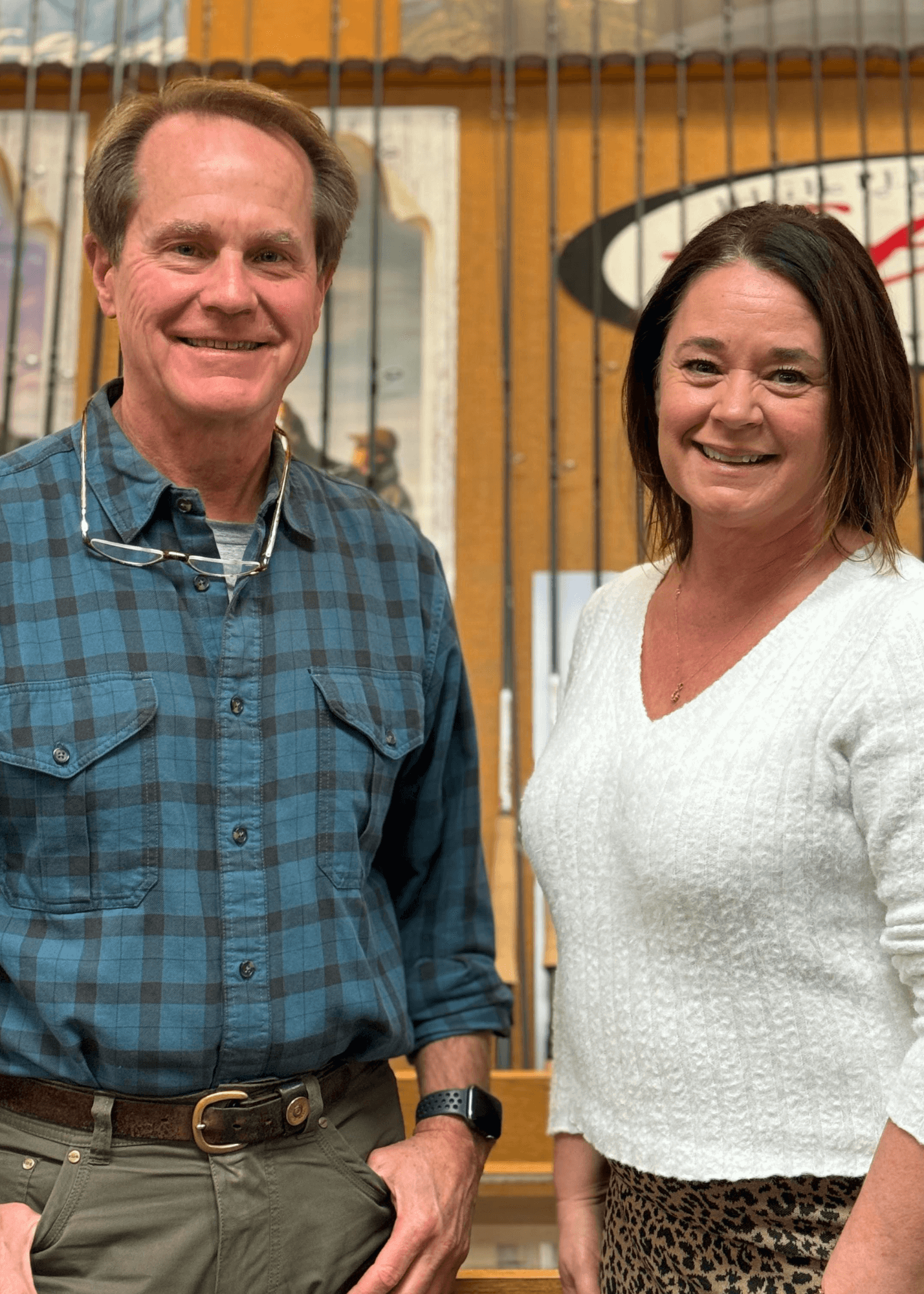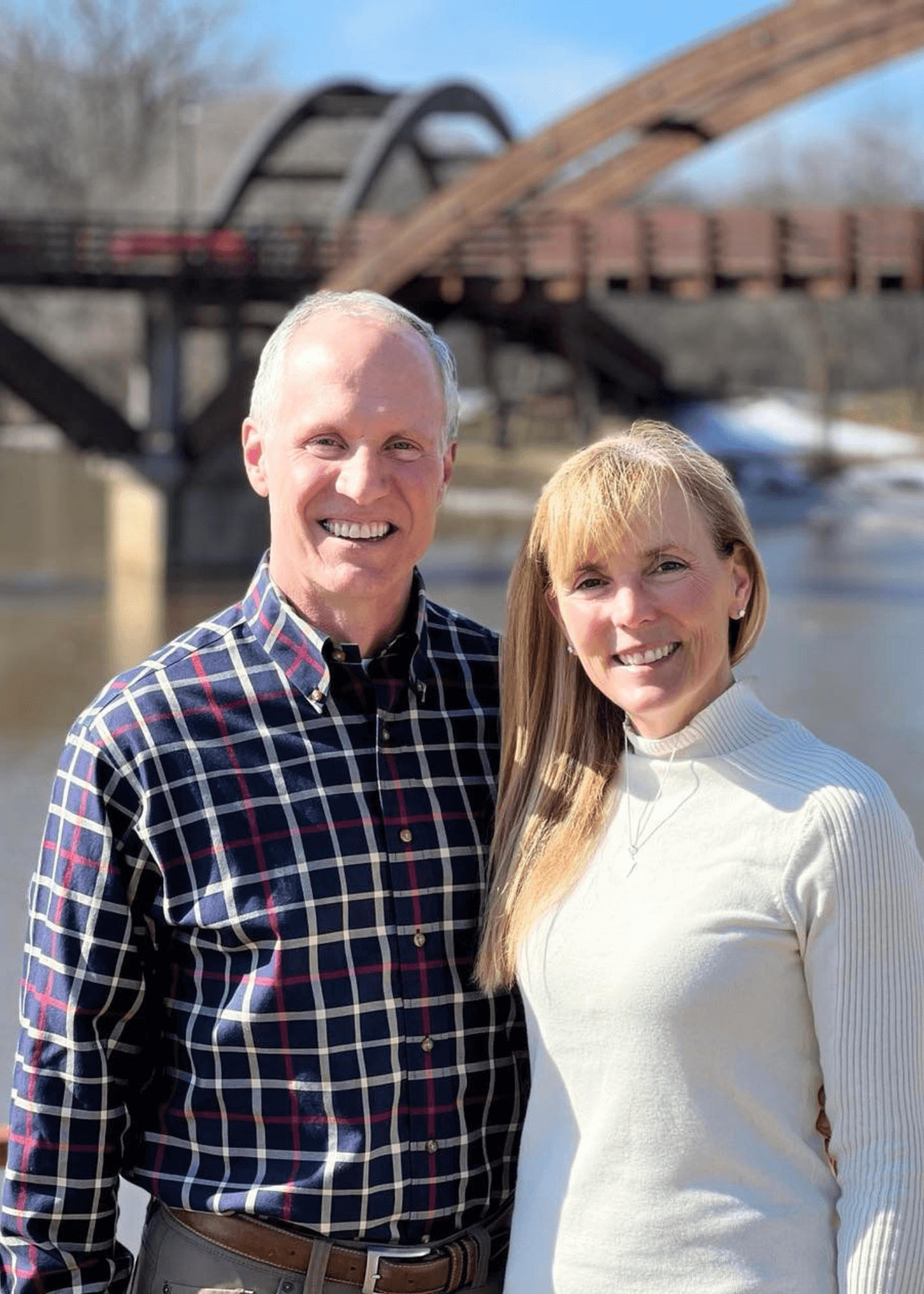Prologue: The Midland Area Community Foundation believes anyone can be a philanthropist. Philanthropy comes in varying forms – donors, volunteers, and engaged community members are a few of them. Iris Mehler, an active Midland Area Access to Recreation Committee member, has advocated to bring about meaningful change in Midland County. Through Access to Recreation, she worked with the committee to assemble a 10-step guideline for how organizations and destinations can provide spaces that are accessible, inclusive, and welcoming for all. Actions like this actively build community, and soon Access to Recreation will rebrand as Access to Community, with a continued focus on advocating for spaces for all.
“Changing Places & Changing Attitudes” – a coffee chat with Iris Mehler, by Renee’ Deckrow
Iris Mehler dreams of Midland truly becoming a place where EVERYONE thrives. As we lean into a full and engaging conversation, I am amazed by Iris’s honesty, resilience, and perseverance.
“Persons with disabilities are often the uninvited guest to the social justice table,” Iris Mehler, mother to two brilliant children, says in a matter-of-fact but determined tone, speaking from experience.
Her eyes sparkle with such joy and unflappable hope as she affectionately shares about her children and love for our community.
Mother, neighbor, social justice warrior, trailblazer, and community advocate.
Iris Mehler holds a bachelor’s degree in Developmental Education and Psychology, a Master’s of Science in Rehabilitation Counseling, and a postgraduate certification in Assistive Technologies. Her education and an earlier career as a rehabilitation counselor prepared her to care for her daughter Keren, and it deepened her understanding of the needs facing the disability community. Iris also co-founded 1 in 6 Consulting, a company that consults employers on supporting caregiving parents, and co-hosts 2 Moms No Fluff. This podcast discusses “the uncensored truth about raising kids with disabilities.” But her caregiving journey has given her heart, passion, and a burning conviction to make communities better by advocating for all individuals and families in the Persons with Disabilities community.
Through Midland Community Foundation’s Access to Recreation Committee, Iris and others have championed vital changes within Midland County. Most impactful: spearheading Midland’s first “Changing Places” restroom facility in Grove Park, set to break ground in 2023. A Changing Places restroom goes beyond the minimum Americans with Disabilities Act (ADA) requirements for accessibility by providing hoists, adult changing tables, and the space for differently-abled people to navigate a public restroom in a dignified way. While ensuring this basic right is a huge accomplishment for advocacy groups, Iris hopes it will also be a catalyst for many future improvements. She dreams of creative film festivals to expand compassion and understanding of disabled experiences and of Midland becoming both a model community and recreation destination for persons with varied mobility needs.
“I have two children – an active & inquisitive ten-year-old son named Hillel, and a fun 14-year-old daughter, Keren, who loves songwriting, Lin Manuel Miranda, and also has quadriplegic cerebral palsy and she’s nonverbal. She is cognitively well but cannot control the muscles of her body except her eyes, which allows her to communicate through “eye gaze technology.”
Iris explained how her children’s educations have been self-led through an approach called Unschooling. Because of Keren’s unique needs and inability to control her body, it became especially important to Iris that her children be given the ability to control aspects of their lives through choice, ranging from which activities they engage into how they would learn.
“I wanted them to enjoy life and to be happy. And there are many definitions of happiness, right? But making choices is one way that a person gains a sense of happiness in life. What is important for me is that my kids grow and are curious and creative.”
As we continue to talk about her unorthodox unschooling approach to educating her children, her innovative creative writing therapies, the power of music, art, and movement for children’s development, Iris shares why she is so passionate about advocating for accessibility throughout Midland, for not only her daughter but for an entire community of individuals with varying needs.
“I know that Keren has outgrown wanting to go to playgrounds, but it is so important for me that we revolutionize how we look at playgrounds here. Because if you think about childhood and children in general, children like to jump in place, twirl around, create kinesthetic (movement) stimulations for themselves. They do all of those things, like pretending to be an airplane, and a lot of kinesthetic play is a part of their normal development. A child who’s confined to a wheelchair cannot do all of that. But that brain stimulation is so important for brain development and for cognitive development. And this is something that is really important to me, and even though my own daughter has outgrown this need, it’s still in my veins. I don’t want any other family to have to go through their kids’ childhood like we did with ours.”
“We would see a playground, and we would make a detour just to bypass that city block so they don’t see that there is a playground because we could no longer lift and carry my daughter. And my son grew up for many years without going to playgrounds because we couldn’t do it with his sister.”
Iris’ passion is evident when she speaks of her dreams for Midland. “My hope for Midland is more than the physical features. I want people to have empathy, knowledge, and awareness of others with different needs. And many people with disabilities don’t go around with a sign. What I hope for our community is that our motto is kindness and that if we see someone who doesn’t quite behave the way we hope or expect people to behave in a situation, to choose kindness, not criticism, not punishment, and not exclusion. We need to be better and to understand that differences and variety is what make us stronger in our country and society.”
“After I moved here, I had the pleasure of getting to know Maureen Donker, our mayor, [whom] I absolutely admire and salute for all that she’s doing, specifically for people with disabilities in this community. I told her how passionate I am about this, personally and professionally, and she put me in touch with the Access to Recreation Committee. This is how I started volunteering and working with this awesome group. One of the first things that I was involved in was creating a list of 10 guidelines to businesses and organizations in Midland in terms of how to make their venue accessible and inclusive for people of a variety of disabilities and a variety of needs. During that process, Access to Recreation decided that the first goal that we had for the Midland Foundation was to promote what are referred to as Changing Places restrooms – all-inclusive that everybody can use. If someone goes out to an event in the community, we all expect to have sanitary restrooms . . . and we need to [know] that’s not the reality for so many people with various disabilities.”
“The Americans with Disabilities Act gives a very basic minimum requirement for an entry into a space and into the restroom. What that person is able to do or not able to do once they’re in that space is a big question. And this is where Access to Recreation is getting involved. We’re trying to really make it so that the people with the most severe disabilities are served, and everybody else can have better access, as well. So, when we create automatic door openers, it’s not just helping a person who’s quadriplegic who needs to open the door like that. It’s helpful to a parent who’s pushing a stroller. It’s helpful to a delivery person whose hands are full and cannot manually push or pull the door. And this is a way that when you look at the weakest link, you strengthen everybody else as well. I have no doubt that big, big dramatic changes are going to happen in Midland County, and I am sure that we’re just seeing the beginning parts of a beautiful flower that is going to bloom here, and I’m so happy to be a part of this process.”
Hearing Iris’ vision for a more inclusive Midland evokes Margaret Wheatley’s declaration, “There is no power greater than a community discovering what it cares about.” The determination to create more opportunities and provide access not only to recreation but to the community through these practical and foundational improvements is certainly powerful and inspiring. As we talked, we agreed on how incredible Midland is and that everyone here genuinely cares deeply. Iris shared with deep gratitude the beautiful structure the Foundation provides so that everyone can be a philanthropist.
“The Midland Area Community Foundation allows lots of people that care about the community and want to contribute their time, talent, and abilities to join together to do so. They provide a great way to contribute to a place where you know people from the community are really joining forces to really bring the best to the greater good.”
Iris overflows with wisdom and inspiration, and I wanted to hear her answer to this question: “What is something you have learned in life that you would share with younger people?”
Profoundly, she offered this sobering reminder:
“We are only temporarily able-bodied, and as perfect as your health might be, in any given moment, you can be unfortunately in an accident. If nothing else, we all age and lose ability, temporarily or permanently, partially or completely. I think that we need to remember to treat people who are differently abled with the same amount of dignity and respect. If people would start thinking like this, if this was my child or if this was my mother, how would we want them to be treated, I think we would improve society as a whole. The reality is that many people have their eyes opened to the situation only when they’re already in that space, and when they are in that space, there’s such chaos and trauma that your ability to advocate for this can be challenging.”
“This is why people with disabilities are the uninvited guest to the social justice table – the ones with the most severe disabilities cannot advocate for themselves. And a lot of parents who are caregivers of children with complex disabilities, they just don’t have our social support systems. They’re trying not to drown with the tasks of caregiving and often struggle to go through their day.”
Iris gives compelling reasons for everyone to care and support these heroes by advocating on their behalf so that they are not only welcomed to the table but are given a voice. Iris and I could have talked for hours and only scratched the surface of this topic. But I always like to end a conversation with hopes and dreams, so when I asked her what is next, I was thrilled with the clarity, thoughtfulness, and vividness of her dream:
“I dream of Midland being Inclusive Town, USA.”
“I want us to be known as a Small Town America that really did make an exceptional effort to include all people with all abilities and that we have not only the facilities to accommodate our own residents but to accommodate visitors and that we will be a destination for a wheelchair users and for people of all abilities who want to go on vacation. With so many resources and with so much education and the socio-economic power, we can do it because we placed a high priority on this. I have this hope and dream because of the people that I have interacted with so far; their deep level of emotional and personal involvement in what happens in the community allows me to literally see that vision coming to life.”
“I have so many ideas, like a Disabilities Film Festival and Pride in Abilities Parade. I started a free support group for caregivers of children with disabilities of all ages. I want to increase curiosity, knowledge, and improve opinions and perspectives of other people, and having a film festival like that would do that for our community. But [it] would also make Midland a tourist attraction; I want to put us on the map. One in four adults in the US has a disability, and one in six children. So if you think about that, we have a variety of people from different socio-economic levels, with different financial ability, and why won’t we invite them to have their family vacation here?”
“We need to make sure also that everybody in the State of Michigan is aware that we have a small city park that has this amazing best-practice restroom that is Changing Places and changing attitudes and approaches for everyone. I hope that we can make a big, big fuss about that because it is a really big deal. I honestly think this is the first one of its kind in Michigan in general, not just Midland County. And we already have the Whiting Forest – the longest accessible canopy walk in all of North America.”
Wow… yes, I am excited and hope you are too!
Iris, thank you for your incredible insights and much-needed contributions to Midland. We are thrilled that you are making Midland your forever home….. and look forward to seeing all of your dreams and hopes for Midland realized in inclusive film festivals & parades, increased accessibility, and supporting everyone’s access to not only recreation but to community itself. Together, Forward, Bold…. we go.





